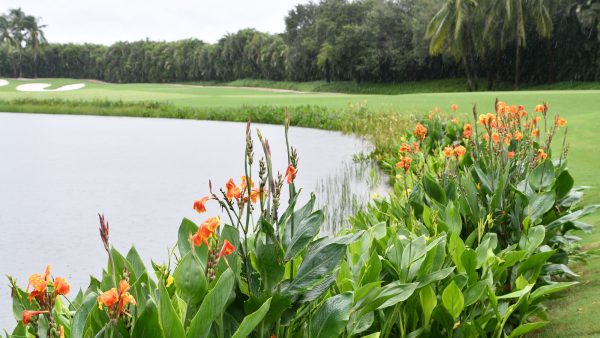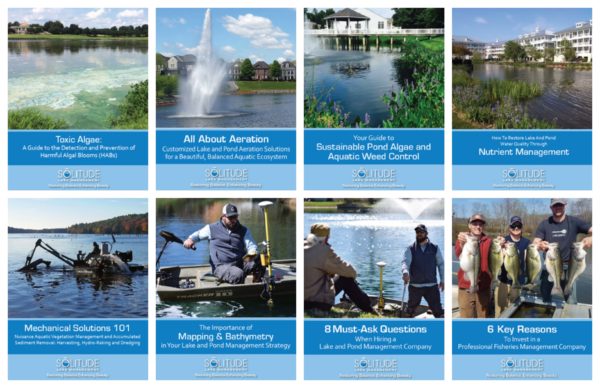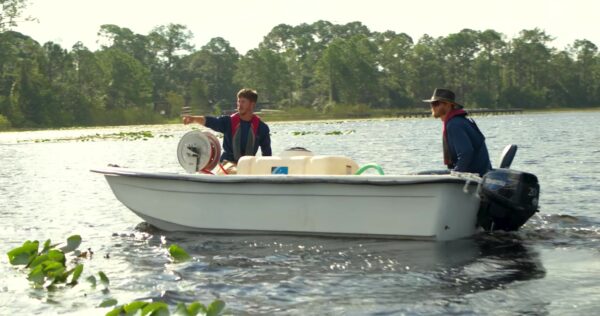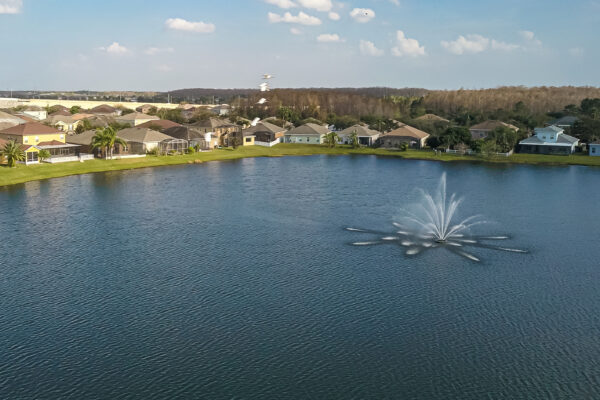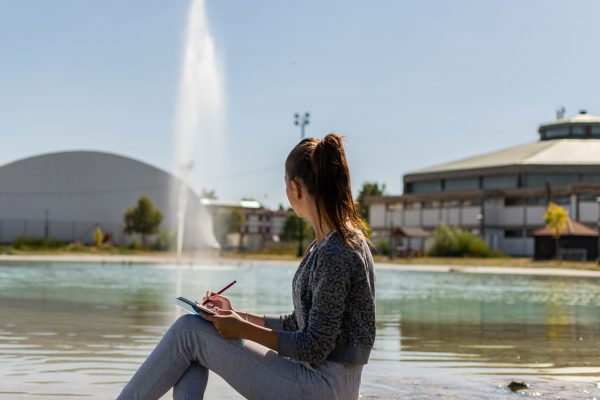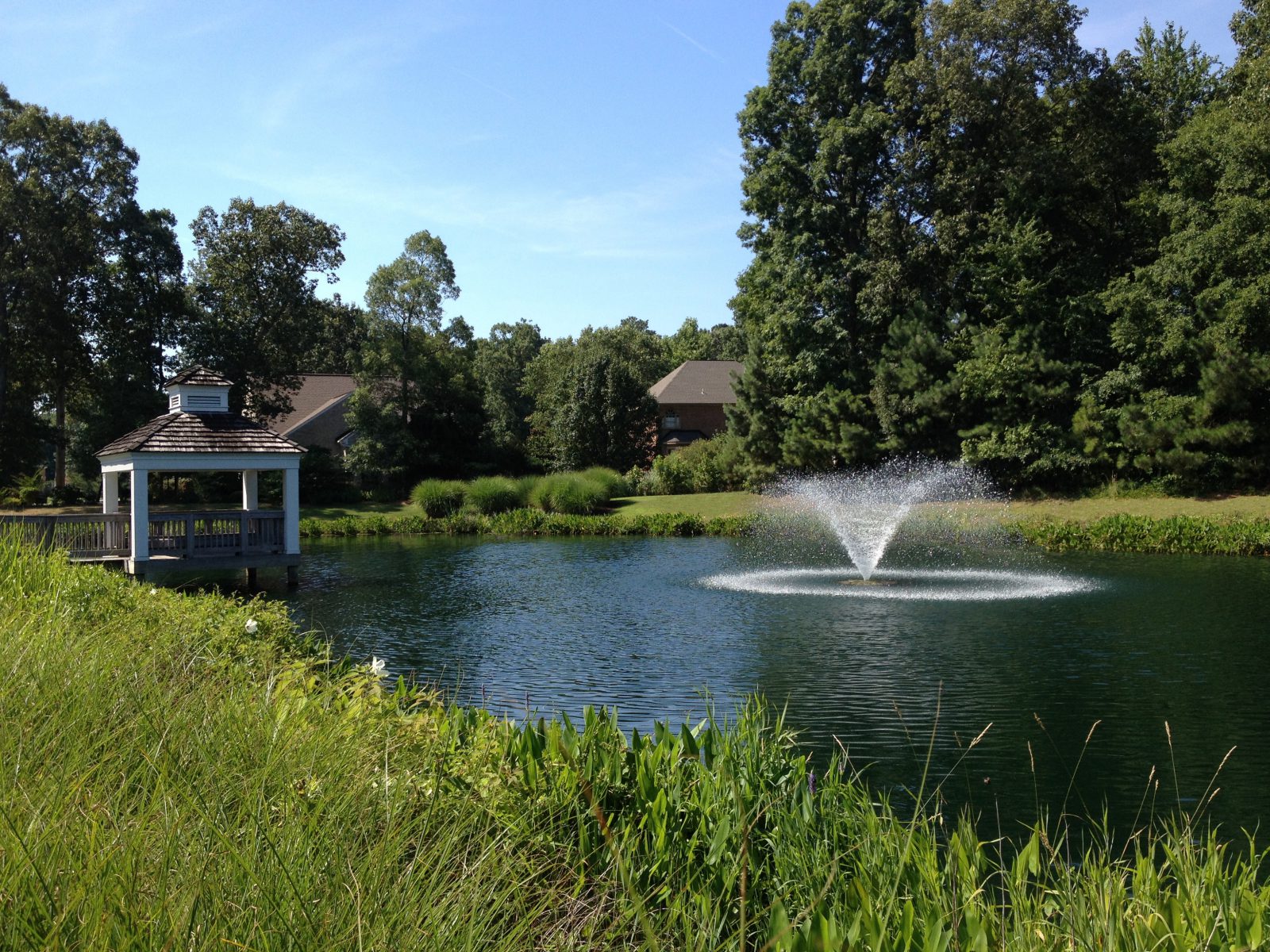
By Industry Expert Kyle Finerfrock, Environmental Scientist
Ponds have a lifespan. When a pond is formed, either by man or Mother Nature, it immediately, like all living things, begins to expire. As grim as that might seem, it’s the way nature works. The lifespan of a pond is determined by how fast it “fills in.” The natural succession is for a pond to turn into a bog, then a bog into a field, then a field into a forest. However, with proper maintenance, the pond will remain a pond as long as possible. Without proper maintenance, care and dredging, all ponds will naturally follow this path.
Ponds are a dynamic, ever-changing environment. Plants and animals are constantly living, growing, reproducing, and dying within the habitat. The pond is a collection basin for the watershed that surrounds the pond. A pond’s purpose, especially stormwater ponds, is to collect water, sediment, and anything else that makes its way to the pond and act as a filter. Young ponds function well and generally do not have a great deal of organic build up. They may only be able to support pond algae life. When algae dies, it decomposes into organic matter and becomes food for more algae to grow. This organic matter accumulates on the bottom of the pond and begins to decrease depth. Keep in mind that leaves and grass clippings that enter the pond also increase the amount of organic matter in a pond, decreasing depth more rapidly. When enough organic matter builds up, plants begin to grow in the pond. First, floating and submersed plants grow. At this point in the pond’s life it can support other life like fish, amphibians and reptiles. All these organisms continue to add organic matter to the pond. Then, emergent plants begin to grow. By this time, the pond is mature and has a build up of organic and inorganic sediment on the bottom. Sediment will continue to fill in the pond causing the water depth to decrease over time until a swamp or bog is formed. Continuing on with succession, the bog will eventually dry up and become a field. With more time the former pond area (now a field) will begin to support trees and will eventually become a forest.
Maintaining and executing a proper pond maintenance plan will keep your pond alive and healthy. Most of the ponds SOLitude Lake Management maintains are not likely to become a forest. Many of the ponds we manage are part of communities and must be maintained to ensure proper function as part of a stormwater system. The life process described in this article is what would happen if a pond was to be abandoned and left alone to let nature takes its course. Just like we, as humans, stay healthy by taking care of our bodies, we help to extend our lives for many years. With proper maintenance, you can extend the life of your pond beyond its natural lifespan and enjoy the pond environment for many, many years to come.
Contact the experts at 888-480-5253 or complete the form below for all of your lake, pond and fisheries management needs.
SOLitude Lake Management is a nationwide environmental firm committed to providing sustainable solutions that improve water quality, enhance beauty, preserve natural resources and reduce our environmental footprint. SOLitude’s team of aquatic resource management professionals specializes in the development and execution of customized lake, pond, wetland, and fisheries management programs that include water quality testing and restoration, nutrient remediation, algae, and aquatic weed control, installation and maintenance of fountains and aeration systems, bathymetry, shoreline erosion restoration, mechanical harvesting and hydro-raking, lake vegetation studies, biological assessments, habitat evaluations, and invasive species management. Services and educational resources are available to clients nationwide, including homeowners associations, multi-family and apartment communities, golf courses, commercial developments, ranches, private landowners, reservoirs, recreational and public lakes, municipalities, drinking water authorities, parks, and state and federal agencies. SOLitude Lake Management is a proud member of the Rentokil family of companies in North America.

